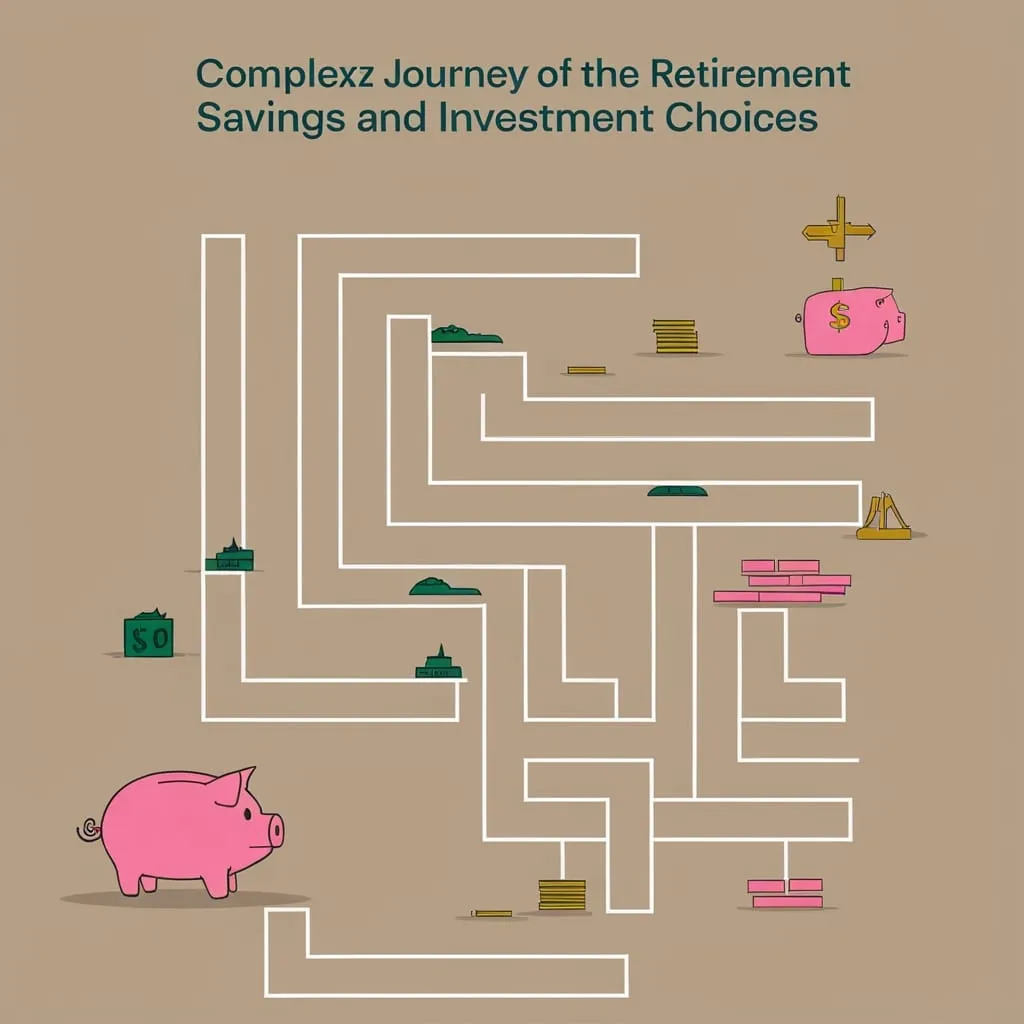Is Your Job Secretly Killing Your Financial Future?
Picture this: You're crushing it at work, climbing that corporate ladder like a pro. But here's the kicker - what if that same job is actually messing with your financial future? Yeah, I know, it sounds crazy. But stick with me here, because this is some real-talk stuff that could change your whole game.
Let's dive into the world of high-stress, high-reward jobs. You know the type - those gigs that promise big bucks but demand your soul in return. Finance, I'm looking at you! Now, don't get me wrong, the money's great. But at what cost?
Imagine working 100-hour weeks. Sounds brutal, right? Well, it is. You're so busy making money that you don't have time to manage it. You're ordering takeout every night, splurging on conveniences, and before you know it, your hard-earned cash is slipping through your fingers faster than sand at the beach.
And let's talk about burnout. It's real, folks. You're so exhausted from work that you can't even remember to pay your bills on time. Your investments? Forget about it. You haven't checked those in months. It's like you're on a hamster wheel, running so fast you can't see that you're not actually getting anywhere.
But wait, there's more! Job instability is a thing, especially in finance. Remember 2008? Yeah, that wasn't pretty. One day you're on top of the world, the next you're clearing out your desk. It's like playing financial Russian roulette with your career.
This instability messes with your head. You start second-guessing everything. Should you buy a house? Start a family? Or should you just hoard your money like a squirrel preparing for winter? It's paralyzing, and before you know it, you're stuck in financial limbo.
Oh, and let's not forget about our robot overlords. Automation is coming for us all, my friends. Even if you're a hotshot banker, there's probably some algorithm out there that can do your job faster and cheaper. It's like living with a sword of Damocles hanging over your head, never knowing when the axe will fall.
So what do you do? You stress. And boy, do we stress. Did you know that nearly a quarter of employees spend about 14 hours a week worrying about money? That's like having a part-time job just for stressing! And more than half of that worrying happens during work hours. Talk about unproductive.
It's a vicious cycle. You're stressed about money, so you can't focus at work. You can't focus at work, so you're not performing well. You're not performing well, so you're worried about losing your job. And round and round we go.
And let's not even get started on mental health. The finance industry is like a petri dish for depression and anxiety. You're under constant pressure to perform, you're not really contributing to society in a meaningful way (sorry, but it's true), and you're always looking over your shoulder. It's enough to make anyone crack.
When your mental health takes a hit, your financial health follows suit. Suddenly, budgeting feels impossible. Making decisions? Forget about it. You're just trying to keep your head above water, and your finances are drowning right alongside you.
So, what's a hardworking professional to do? Don't worry, I've got your back. Here are some strategies to help you protect your financial future, even if your job is trying to sabotage it.
First up, get financially literate. I'm not talking about becoming the next Warren Buffett, but you should at least know the basics. Learn about budgeting, investing, and saving. Trust me, it's not as boring as it sounds. There are tons of cool apps and websites that make it fun. It's like playing a video game, but with real money!
Next, build yourself an emergency fund. Think of it as your financial panic room. Aim for three to six months of living expenses. It might seem like a lot, but trust me, when shit hits the fan, you'll be glad you have it.
Don't put all your eggs in one basket. Diversify your income. Maybe start a side hustle, or invest in some passive income streams. It's like having a backup generator for your finances. If your main power source goes out, you've still got lights on.
If you're struggling, don't be a hero. Seek support. Talk to a financial advisor, a therapist, or even just a friend. Sometimes, just venting can make you feel a whole lot better. It's like releasing the pressure valve on your stress cooker.
Work-life balance isn't just a buzzword, it's essential. Set boundaries at work. Take breaks. Have hobbies. Remember, you're a person, not a money-making machine. When you're happy outside of work, you're better equipped to handle the craziness at work.
Lastly, keep learning. In a world where robots are gunning for your job, you need to stay ahead of the game. Take courses, get certifications, learn new skills. It's like upgrading your personal software to stay compatible with the latest version of the job market.
Here's the bottom line: your job can impact your financial future, especially if you're in a high-stress field like finance. But you're not powerless. You can take control. Be proactive about managing your finances. Reduce stress. Maintain a healthy work-life balance.
Remember, your job should be a means to an end, not the end itself. It should enhance your life, not consume it. Your financial well-being is crucial to your overall happiness and success. Don't let your job dictate your financial future. Take the reins and steer yourself towards long-term financial health.
It's all about finding that sweet spot. That balance that works for you. Whether you're crunching numbers on Wall Street or flipping burgers on Main Street, your job should be helping you build your financial future, not secretly sabotaging it.
So take a step back. Look at the big picture. Are you working to live, or living to work? Are you building wealth, or just running on a never-ending treadmill? It's time to get real with yourself and make some changes if needed.
Remember, you're the CEO of your own life. Make decisions that will benefit your long-term financial health. Prioritize your financial literacy. Build that safety net. Diversify your income streams. Seek support when you need it. Focus on work-life balance. Keep learning and growing.
Your future self will thank you. Trust me, future you is looking back right now, either cursing you for not taking action, or thanking you for having the foresight to make changes. Which version of future you do you want to create?
So, is your job secretly killing your financial future? Maybe. But now that you know the signs and have some strategies to combat it, you're armed and ready. It's time to take control, make your job work for you, and build the financial future you deserve. You've got this!






